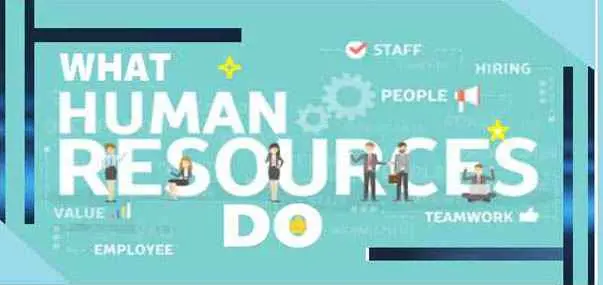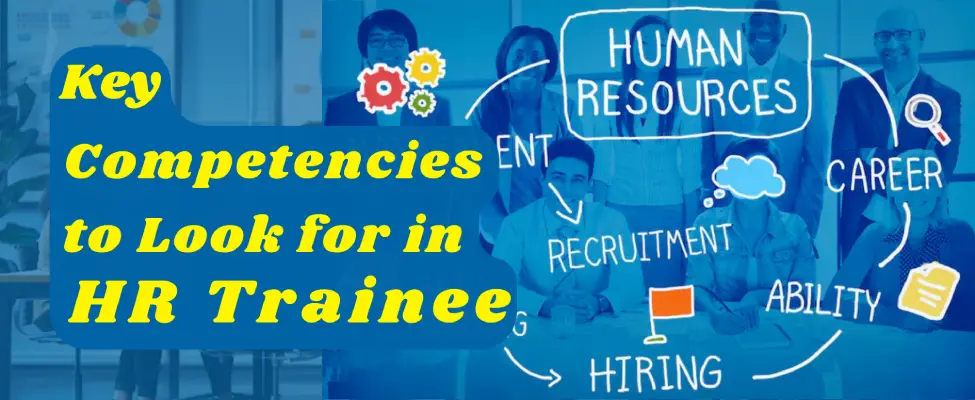Category
What is the Role of HR?
Human resources management has today become an integral part of every organization, be it small or big. A few years back no such specific department existed in the organization and there was a question what does an HR can do in a company, or even if HRM exists, it did not hold such importance as of today. The rising Role of Human Resource and importance of HR has been seen due to companies’ requirements for highly skilled people to compete in business globally. HR Role in company is as like as the famous biologist Charles Darwin said, “Struggle for existence, Survival of the fittest”.
Table of Content
This article tries to throw a light on the crucial role of Human Resource play in today’s world and what does an human resource do in a company and how it helps in Managing people and support overall in business in an organization.
What does an HR do?
To begin with the role of human resource is primarily about developing HR policies and procedures and implementing it within the organization, building a work culture and creating a best workplace for all the employees working in an organization and establishing people value and its participation. The HR Role in company is to carry out the most important activities such as recruitment and selection, training and development, performance management, performance appraisal of the employees etc. It also talks about the employee’s relationship with their work, whose aim is to bring them all together to develop a successful organization.

HRM is that part which develops the human aspects of the organization and consistently work to prove that what does an hr can do for the betterment of the employees. HR Role in company is directly or indirectly contributes in achieving organizational goals. Many times, HRM is defined as a method meant to develop potentials in an employee so that they feel satisfied with their work and put their efforts towards achieving the goals of the organization.
An organization will always consider its worker an asset along with his skills and abilities. It takes a lot of planning in order to manage people. A successful organization will always try to optimum utilization of such valuable resources. For this, various strategies are adopted such recommendation process, feedback on the work, solutions to internal and workplace environment issues. Human Resource Management active role helps organization to always keep improving. For instance, there are companies who believe in keeping its employees happy and provide them tons of perks, benefits, day-to-day facilities, flexible workspace. Offices are said to provide in-house sports activities like hockey, volleyball, etc.
With the changing world, the role of human resource also has changed; the new terms evolve for the same concept. The term ‘human capital’ is quite trending these days. Other terms could be personnel management, people at work, human assets, and social capital. Also, those human resources are much inter-dependent and inter-related with each other. They interact socially and psychologically with each other as well. Whereas some might say that HRM is meant to achieve individual, organizational and social objectives through tasks such as planning, organizing, directing, controlling and integration.
All these definitions lead to one conclusion, that role of HRM is nothing but to the management of people within the organization through various policies and manage tasks like recruitment, planning, organizing and directing to achieve organizational and individual goals leading ultimately to the growth and development of both the organization as well as the individual.
11 Most important Tasks of HR:
The role of Human Resource is important in various tasks and areas within a company. Here, listed below the top 11 most crutial tasks performed by an human resource department and where the role of HR is important in an organization:
Recruitment and Selection
HR is responsible for recruiting and selecting the right candidates for the right job role in an organization. It doesn’t end here, HR needs various policies and strategies to manage people and that to also comply with their organizational needs and requirements. The recruitment and selection is alll about searching the new talent and recruiting new employees and helping an organization to improve in the quality of the human capital working within the organization. An effective recruitment process brings the best talent in company.
Training and Development
Another important role of human resource is of providing training and development to the employees. The right training as well as behavioral training has seen a trend in the last few years. Organizations are ready to invest in the training of their employee to meet the technical and behavioral requirements of the business operations. Training and skill development is a regular need of the business as the technology is being used not only to build and operate plant and machinery but it also very much exists and keeps changing day by day to perform any of the official tasks.
HR Role in company is to conducts various training programs to enhance the skills and knowledge of employees. They identify training needs design and develop training sessions. Thus HR plays a crucial role in developing a culture of learning and development within an organization. Training and development can take different forms such as workshops, seminars, online courses and on-the-job-training. Thus, training programs provides an opportunity for employees to acquire new skills and expand their knowledge.
Performance Management
HR develops and implements the performance management of an organization. Role of HR in a company is to conduct performance evaluation of an employee and provide feedback to employees. HR also monitors the performance of an employee who performs below expectation and provides the employee appropriate training program and thus helps the employees excel at their work. The process of performance management includes the following steps:
- Recognition and rewards
- Goal setting
- Performance planning
- Ongoing communication
- Performance evaluation
- Feedback and coaching
- Performance improvement
Compensation and Benefits
The simplest meaning of compensation is to pay the worker for his work. The role of HR here is to see that timely and fair compensation is given to the employees. It includes health benefits, retirement plans, stock purchase plans, etc. Compensation refers to monetary rewards such as salaries, wages, bonus and incentives whereas benefits mean the non monetary perks and programs such as health insurance and retirement plans. The purpose of Compensation and benefits is to attract, retain and motivate employees and to ensure fair and competitive compensation practices within the industry. Implementing fair compensation ensures increased job satisfaction, employee engagement and employee well-being.
Employment Laws
Every country has its own set of labor and organizational laws that the companies need to strictly follow. It’s the job of the HR department to see that the organization abides by these laws. For instance, In India, there are various laws such as the factories act, mines act, industrial employment act, etc. and as per the industry, the HR role in company is make sure that all the compliance requirements are fulfilled as per the Govt. guidelines. Nowadays, with increasing female workforce in the country, the government has also come up with laws to protect them such as the equal pay act, maternity leave act, whistleblower act, etc. Employment laws ensure fair treatment, equal opportunities and safe working conditions for the employees.
Grievance Redressal
Another important role of HR is Grievance redressal, which is aimed to resolve employee concerns and grievance or complaints in the workplace in a fair and timely manner. An effective grievance redressal is important to maintain healthy and positive workplace environment and enhance employee job satisfaction. Thus, when grievances are addressed promptly organization can address employee concerns easily and helps in solving conflicts from escalating. Such a process fosters employee engagement and contributes to the growth of an organization.
Promotion
Promotion means moving employees to higher positions enhancing their job responsibilities and salary increase. Promotion is an important aspect of human resource and helps in employee development, motivation and organizational growth. The promotion policy does not just include seniority or higher pay, but also look at many duties and responsibilities performed by an employee. From the HR perspective, it is the optimum utilization of a person’s skills and abilities as well as pushing his/her limits for better work performance, higher outputs and increased knowledge.
HR promotes an employee on the basis of his previous performance charts, organizational behavior, leadership and other factors. The HR is also equipped with the mechanism of demotion. It is moving down the position of employee from his current one. These can be due to his incapability of performing a job or many a times his indecent behavior. Another HR role in company is to design and implement a fair promotion policy and practices within the organizations which ultimately help increasing employee motivation, employee engagement and retention. This will also helps to reduce employee attrition rate.
Job Rotation
Job rotation refers to shifting employees from one role to another role and responsibilities within an organization. Job rotation helps the employees develop new skills, broaden their knowledge and gain a broader perspective of an organization. The sole purpose of Job Rotation Policy is to make the employee multi-skilled and giving a change to do something extraordinary or different from the regular normal work. Sometimes such activities help employees find their talents or work in which they are very good at and motivate them to do the job more speedily and productively. It also expands their overall knowledge and experience.
Legal Compliance
Legal compliance is adherence of individuals, organizations and businesses to laws, regulations and standards set by governing authorities. Adhering to rules and regulations is an important aspect of human resource. The HR department ensures that the company or organization should follow the employment laws, safety regulations, and other legal requirements. HR role in company is also handles matters related to employee rights, diversity and inclusion, and workplace ethics. Failure to comply with legal requirements can result in severe consequences, including legal penalties, fine, reputational damage, loss of business licenses, and even criminal charges. Additionally, non-compliance can lead to employee grievances, customer dissatisfaction, and harm to the environment or public health.
Organizational Development
Another role of HR is to manage organizational change and development in an organization. The HR department helps to implement new strategies, technologies or changes within an organization. Organizational development in HR role in company is to focus on enhancing people HR practices and processes to support the organizational development efforts. Organizational development or OD includes intervention and activities aimed at improving organizational effectiveness. These OD interventions include strategic planning, change management, leadership development, team building and performance management.
Employee Retention
Employee retention is an important aspect in an organizational success. The role of HR is to develop and implement strategies to increase employee retention. HR department helps in creating positive work environment fostering employee engagement and job satisfaction. The HR role in company is to develop employee engagement programs that help in employee retention and minimize organizational turnover. Retaining employees saves organization costs associated with recruitment, onboarding process and training new employees. Employee retention helps in increased productivity and increased job satisfaction and employee well-being.
Thus, the role of HR Department is just not limited to become a cost minimizing or cost cutting department in the organization. Rather it has become an investment department given the important roles to play. These tasks highlight the multifaceted role of HR in managing the people aspects of an organization. HR plays a vital role in talent acquisition, development, engagement, compliance, and overall organizational devepment and its effectiveness.
Latest JobsView All
-
 PPC Executive with Advance Excel... Noida 03 Jan 2026
PPC Executive with Advance Excel... Noida 03 Jan 2026Ascent Human Solutions Pvt. Ltd..
-
 Customer Training Specialist @ Mumbai... Mumbai 26 Dec 2025
Customer Training Specialist @ Mumbai... Mumbai 26 Dec 2025Ascent Human Solutions Pvt. Ltd..
-
 Area Sales Manager - HORECA Sales... Ghaziabad 03 Jan 2026
Area Sales Manager - HORECA Sales... Ghaziabad 03 Jan 2026Ascent Human Solutions Pvt. Ltd..
-
 Sales Executive... Ranchi 22 Dec 2025
Sales Executive... Ranchi 22 Dec 2025ARYAN DEVELOPERS
-
 Assistant/Deputy Manager - AIS... Pune 22 Dec 2025
Assistant/Deputy Manager - AIS... Pune 22 Dec 2025Ascent Human Solutions Pvt. Ltd..
RELATED ARTICLES
-
Business & Management Budget-Friendly Office Cubicles: Cost-Effective Options for ... Explore
-
Law & Compliances Integrating Local Law 152 Gas Inspections Into Your Annual B... Explore
-
Human Resource Key Competencies to Look for in HR Trainees Explore
-
-
Performance management Employee Happiness and Workplace Happiness 2025 Explore
-
Performance management Boosting Employee Engagement and Knowledge Retention through... Explore
-
Human Resource Why Employee Voice Matters? Explore
-
-
-
Human Resource HR Planning - How to Manage Your Leave Policy Structure Explore
-
Human Resource Mastering Leadership: The Three C's of Success Explore
-
















